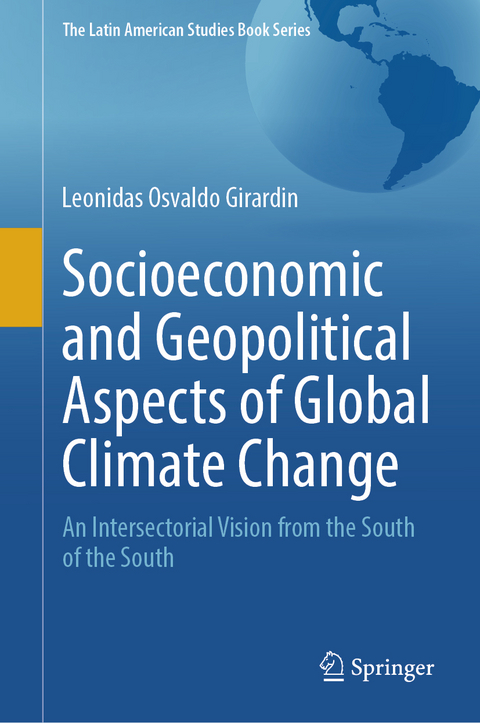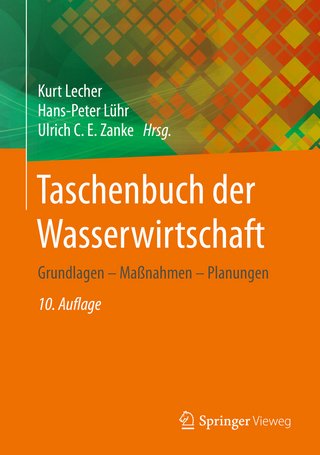
Socioeconomic and Geopolitical Aspects of Global Climate Change
Springer International Publishing (Verlag)
978-3-031-53245-0 (ISBN)
This book discusses climate change from an academic point of view centered on and from Latin America. Although climate change is a global issue, there has been a notable lack of input from the Latin American perspective, which means that many Latin American intellectuals often bring ideas, tools and potential solutions proposed by external, international research centers or organizations to the region. This book embraces a Latin American viewpoint to critically engage the problem and many of the concepts used in the analysis of climate change.
The text emphasizes heterogeneity as an essential factor that cannot be absent in the analysis of how to understand and face the challenges posed by climate change. This heterogeneity refers not only to the magnitude of the impact that different regions will experience (including in their productive activities, ecosystems and social groups), but also to their contexts and capacities. Different countries' and regions' historical accumulated emissions-the primary cause of the current atmospheric concentrations of greenhouse gases-can inform current responsibilities, and their diverse productive structures will also contribute to different baselines in energy, agriculture and other sectors. Asymmetries in economic, technological and political capacities to face climate-related challenges will influence the social and economic costs of potential adaptation and mitigation measures.
Using this conceptual approach, the book focuses on some of the main climate change-linked impacts expected in the region, such as effects on semi-arid ecosystems, and feasible, sector-specific adaptation measures. Furthermore, it contextualizes mitigation measures that appear on the international agenda (including the utilization of economic instruments to flexibilize the fulfillment of climate commitments) in the Latin American region.
Socioeconomic and Geopolitical Aspects of Global Climate Change: An Intersectorial Vision from the South of the South offers socioeconomic and geopolitical analysis from the perspective of a region that is going to suffer impacts disproportionately greater than its historical and current responsibility in triggering this global environmental threat.
Leonidas Osvaldo Grardin is an Economist with a master's degree in environmental and Territorial Policies (University of Buenos Aires), as well as in economics with an orientation in Economic Development, International Trade and Employment (Di Tella University, Argentina). After getting his master's degrees, he did a post study in Environmental and Energy Economics (University of Comahue, Argentina). Currently, He is a Researcher of the Argentinian National Council on Science and Technology (CONICET) and a Senior Researcher at the Bariloche Foundation. His main field of activity consists of environmental economics, climate change economics and the relationship between development, economy, energy and environment. He was consultant at ECLAC, World Bank, IADB, UNDP, UNEP, among other international institutions and is Professor at many universities in Latin America besides Argentina. From 2008 to 2015, he was a member of the IPCC Bureau of the Task Force on Inventories, and the UN Expert Group on Technology Transfer from 2002 to 2005. Besides being a member of Working Groups of Argentina´s First and Second National Communications on Climate Change to UNFCCC as well as Argentina´s Representative in different meetings relating to Climate Change. Additionally, to his activities as an environmental economic adviser, researcher and University Professor, he is an author of many valuable articles, books, chapters, papers, documents and reports for national and international organizations such as the UNFCCC, ECLAC, World Bank and more.
Chapter 1. Introduction. Socioeconomic And Geopolitical Aspects of Global Climate Change. An Intersectoral Vision Form The South of the South. Situation of the International Negotiation from the Paris Agreement (December, 2015) and its Latter Evolution. "We Were Few, and The Pandemic Arrived.- Chapter 2. Agriculture and Climate Change: Opportunity of Threat?.- Chapter 3. Climate Change and Semi-Arid Regions in Latin America Threats and Challenges.- Chapter 4. Energy And Climate Change: Challenges for Low-Carbon Development.- Chapter 5. Socioeconomic and Political Aspects of Climate Change. The Role of the Clean Development Mechanism and Other Market Based Mechanisms in Contributing to the Ultimate Objective of The UNFCCC and Sustainable Development. A Latin American Point of View of the situation after the Paris Agreement.- Chapter 6. Regional Study on the Economics of Climate Change in South America. Argentine Chapter (ERECCS-Argentina). ECLAC.- Chapter 7. Forest Fires in Australia: Are we Inevitably "In The Oven" also in Argentina?.
| Erscheinungsdatum | 23.03.2024 |
|---|---|
| Reihe/Serie | The Latin American Studies Book Series |
| Zusatzinfo | VII, 170 p. 60 illus., 58 illus. in color. |
| Verlagsort | Cham |
| Sprache | englisch |
| Maße | 155 x 235 mm |
| Themenwelt | Naturwissenschaften ► Geowissenschaften ► Meteorologie / Klimatologie |
| Wirtschaft ► Volkswirtschaftslehre | |
| Schlagworte | climate change • Climate Change Economics • Climate Change Geopolitics • Latin America • Socioeconomics Issues related Climate Change |
| ISBN-10 | 3-031-53245-7 / 3031532457 |
| ISBN-13 | 978-3-031-53245-0 / 9783031532450 |
| Zustand | Neuware |
| Informationen gemäß Produktsicherheitsverordnung (GPSR) | |
| Haben Sie eine Frage zum Produkt? |
aus dem Bereich


